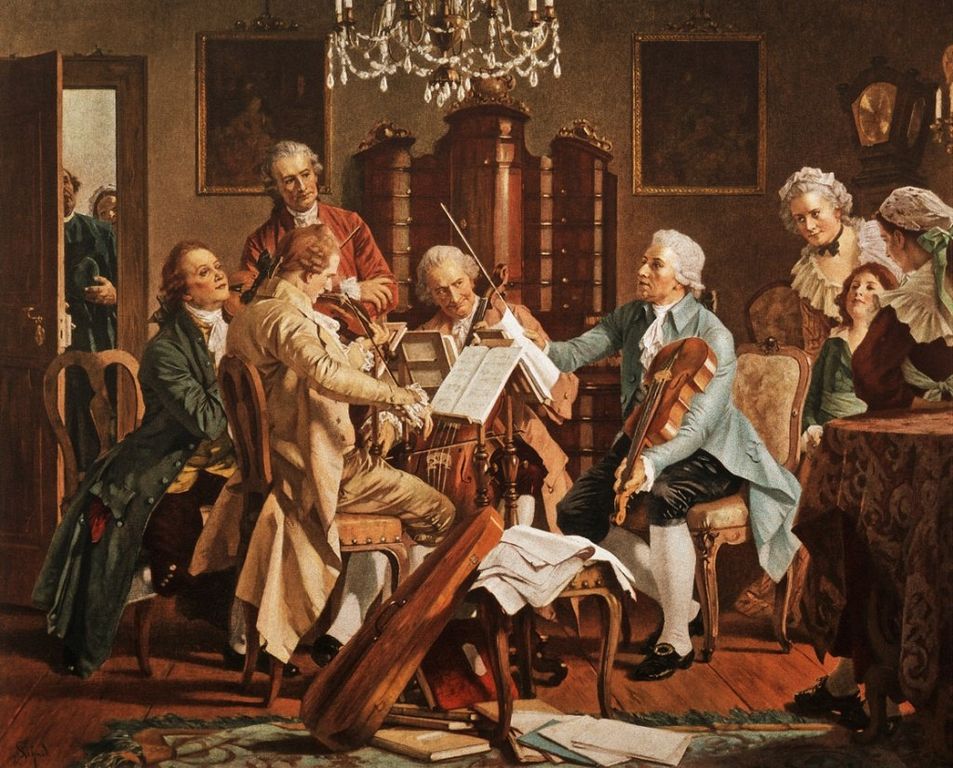Everyday Philosophy: The hidden beauty of death-metal screaming

- Welcome to Everyday Philosophy, the column where I use insights from the history of philosophy to help you navigate the daily dilemmas of modern life.
- This week, we look at the aesthetic appreciation of screaming.
- To do so, we look at the philosophy of Arthur Schopenhauer and Susanne Langer.
I recently got into death metal and wondered why so much of society and I were turned off by screaming and growling in singing. Why is that?
– Seth, US
What I love about this question is the “I recently got into death metal” bit. I don’t know how it came about, but I imagine Seth walking past an open window, hearing some death metal, and thinking, “Hey, that’s my kind of jam.” I imagine Seth rushing back to his computer, finding the relevant subreddit, and staying up until the early hours flicking through YouTube’s not-entirely-legal catalog of copyrighted death metal. And now, here Seth is, wondering why he’s such an anomaly.
So, I suppose the first point to make is the obvious one: not everyone is turned off by screaming. In fact, Seth rather likes it. A great many people like it. But I will take the question as it was asked. Because I think Seth is right, enjoying the distorted clip of a death-metal scream is certainly a minority predilection. So much of society is turned off by screaming.
To answer his question, we’re going to have to unroll the busy scoresheets of aesthetics. We’re going to call upon the musical thoughts of two philosophers: Arthur Schopenhauer (via Richard Wagner) and Susanne Langer.
Schopenhauer: Cutting to the chaff
When you try to establish any kind of “philosophy of art,” you quickly come up against a big problem: art is a heck of a large category. How can you say anything meaningful about a subject that spans ballet, toilet graffiti, funeral orations, and hand puppetry? But the thing about the philosophy of music is that it’s different in one key respect: there is no surface matter. There is nothing that correlates with what the art is trying to represent.
For Arthur Schopenhauer, music is the highest of all art forms because it does not try to copy reality (as a movie might) or some phenomena in the world (such as an emotion). Music is its own category. It’s untrue to say that all art is representative of something in the world — what does a dance “represent”? — but all other art does require some gatekeeper. There is a medium required that shows us something, which then elicits some feeling or thought. But for Schopenhauer, music cuts out the middleman. There is no intermediary medium; no canvas is required.
Music and sound go to the heart of things. Schopenhauer thought that all art should reveal “the essential nature of external things,” but music does so immediately and intensely. Art is a transformative, often spiritual experience that brings the subject in touch with the “Will” underpinning all reality. Music is the purest, unfiltered form of that.
Langer: Burning bright and burning out.
We can turn to Wagner to bring Schopenhauer’s philosophy to bear on Seth’s question. Wagner frequently made use of a dramatic scream in his operas, either by his stage directions or by a high, screeching pitch on the score. Wagner did so, consciously trying to emulate Schopenhauer’s point. He believed a scream was a pure and primal expression of some core human truth. As he wrote, “Without any reasoning go-between, we understand the cry for help, the wail, the shout of joy, and straightaway answer it in its own tongue.” A scream has a power that every human, everywhere, can appreciate. There is nothing more human than a scream.
So, if we agree with Schopenhauer and Wagner, why is Seth right to say much of society is “turned off” by screaming? The answer might be because of the intensity of the experience.
Wagner knew that you couldn’t have an opera constantly peppered with screaming because it would start to lose its effect. An intense and honest explosion of feeling doesn’t happen all the time; the rarity of the scream makes it more powerful. In her 1953 book, Feeling and Form, the philosopher Susanne Langer argued that “music is a tonal analogue of emotional life.” Music is not scary, joyful, or sad; rather, they come embedded or embodied in the music.”
If, then, music symbolizes and expresses human emotions, then there’s only so much screaming one person can (usually) take. Screams represent distress, trauma, desperation, and panic, all of which are essential ingredients to a dramatic aesthetic experience. But you can’t experience them for too long without coming away damaged.
A different kind of listener
Music tastes are an odd thing. If you speak to someone who doesn’t like death metal, then it can seem truly bizarre that some people do. A song can be breathtaking art to one person and an ear-aching din to others. So why are people like Seth such an anomaly?
You probably don’t need a study to tell you (although there are many) that listening to someone screaming is a stressful experience. Cortisol levels shoot up, our hearts race, and our breathing quickens. And yet, other studies seem to show that listening to screaming metal is good for you; it alleviates the fear of death and can elicit feelings of “power, joy, peace, and wonder.”
No one knows why these differences exist, but I have a theory. It’s utterly unscientific, so please do write in if you disagree or have a counter-position. I believe that it’s all to do with how far you empathize with the death-metal screams. If you hear the screams as someone else telling an unsettling story about their own scream-worthy lives, then you might find them unenjoyable. I think Langer has a point, and listening to someone else’s wailing misery is not fun for any sustained period. Of course, not all metal screams are about misery and misfortune. In fact, they’re often about strength, anger, and power. But the point remains; these screams are intense.
On the other hand, if you step inside the song and scream with the singer, I believe you’ll enjoy it more. In the case of misery-screams, it’s a kind of cathartic experience where you’re screaming away your own internal pain. You’re not listening to someone else in distress. You’re processing and cleansing your own distress. Or, in the case of strength, anger, and power you can find yet more catharsis. You experience these emotions with the screamer. They wear off on you.
So, Seth, my answer to your question is that when most people hear other people screaming, it’s a stressful, unenjoyable experience. But if you yourself are screaming with the singer (literally or not), then you will enjoy a cathartic release of some kind of pent-up emotion.




